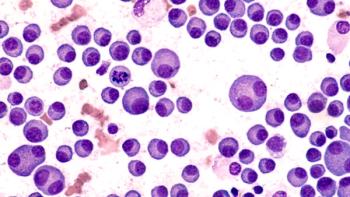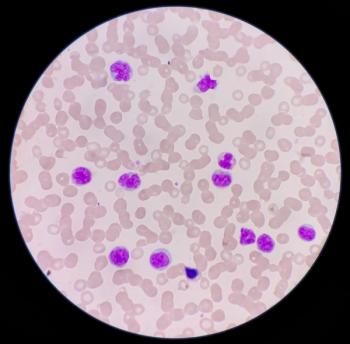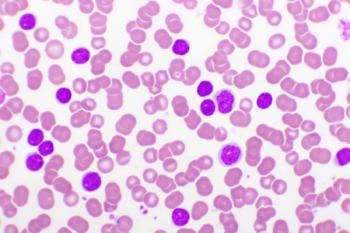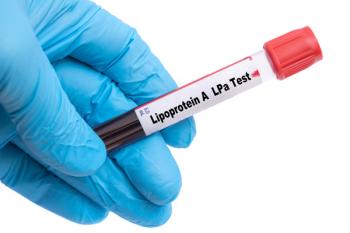
Access to gene therapies can pose challenges for patients.
Alana Hippensteele is lead editor at Pharmacy Times®, Contemporary Clinic, and Pharmacy Times Oncology Edition®. She has a master's in Critical Theory and Creative Research from Pacific Northwest College of Art and a bachelor's degree in English and Art History. She has worked as an English instructor at Temple University and held editorial positions at American Cleaning & Hygiene and Tin House.

Access to gene therapies can pose challenges for patients.

Further policy changes to promote gender equity may be needed.

There is a prognostic impact of clinical and immunohistochemistry markers.

An FDA approval of 3,4-Methylenedioxy-methamphetamine (MDMA)–assisted therapy would require the Drug Enforcement Administration to reschedule MDMA in acknowledgement of its medical use, making it available for prescription medical use.

These data support the combination of daratumumab plus VRd followed by daratumumab and lenalidomide maintenance as a new standard of care for transplant-eligible patients.

The model may help clinicians identify patients who would benefit from disease-specific therapies or enrollment into clinical trials.

This is the first trial to show that a measurable residual disease (MRD)–guided approach with treatment beyond MRD negativity has a significant advantage over chemotherapy, both in terms of progression-free survival and overall survival.

The study results shine a light on the potential need for further policy changes that promote gender equity and bridge the gap in R01 funding awarded to female applicants.

The efficacy of treatments, which is the outcomes in the ideal clinical trial setting, are known to often be better than the effectiveness of those treatments, which are the outcomes of patients in the real-world setting.

The study findings have implications for the identification of novel pathways with which to selectively target folate-metabolism blood cancers.

Paul Feuerstadt, MD, FACG, AGAF, discusses insights in current treatment practices for CDI at the Peggy Lillis Foundation’s 2023 State of C diff Virtual Town Hall.

The AZALEA-TIMI 71 randomized trial evaluated the safety and tolerability of 2 blinded doses of the novel factor XI inhibitor abelacimab compared with open-label rivaroxaban.

Clinically meaningful lowering of blood pressure through reduction in dietary sodium was achieved safely and rapidly in 1 week in a middle-aged and elderly cohort.

Elevated Lp(a), which was previously untreatable, may become treatable in the near future, according to the study investigator.

The SPRINT trial was the first to demonstrate the benefit of further reduction in blood pressure, but it included a limited Asian population and excluded patients with diabetes or history of stroke.

The SELECT trial expands on existing literature that have shown safety and cardiovascular benefit in individuals with diabetes to now also show benefit in obesity.

The American Heart Association published a statement describing the cardiovascular-kidney-metabolic (CKM) construct, specifically highlighting treatment challenges for CKM syndrome.

The increased costs for patients with recurrent hyperkalemia were driven by the increased inpatient medical cost of additional time spent in the hospital following recurrence.

An analysis of the REVOLUTIONIZE II study data showed that there is an unmet need for long-term outpatient treatment of hyperkalemia in patients with CKD.

The trial data showed ongoing clinical benefit in patients with advanced endometrial cancer who completed pembrolizumab and continued on lenvatinib vs chemotherapy alone.

Oncology leaders and pharma representatives discuss collaboration best practices.

Following an increase in government seizures of ayahuasca, an Indigenous religious organization requested government records that led to these seizures. The DEA responded by sending a single report condemning use of the drug.

Opportunities for an additional specialization in molecular pathology may be helpful to train professionals in the real-time interpretation of gene therapy test results.

Annual NCODA Oncology Institute brings together leaders in industry to speak with leaders in clinical practice to discuss some of the commonalities and areas of opportunity to address challenges facing oncology professionals.

New data have resulted in updated guidelines for neoadjuvant cemiplimab.

There are currently no effective treatments for CIPN prevention.

These data support a paradigm shift in the treatment of locally advanced rectal cancer.

For many patients with C diff, the experience of medical gaslighting is a common one because many health care providers lack education and familiarity with the disease.

FRα expression is limited on normal cells, but upregulated in ovarian cancer cells.

Neither of the 2 current standards of care offers patients a cure.